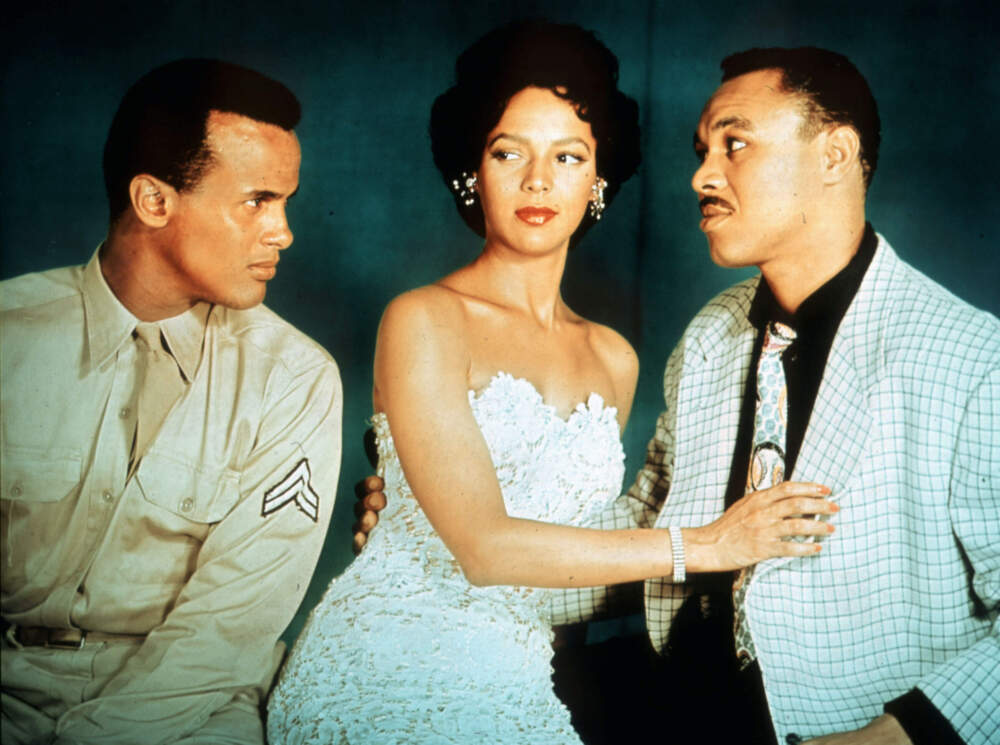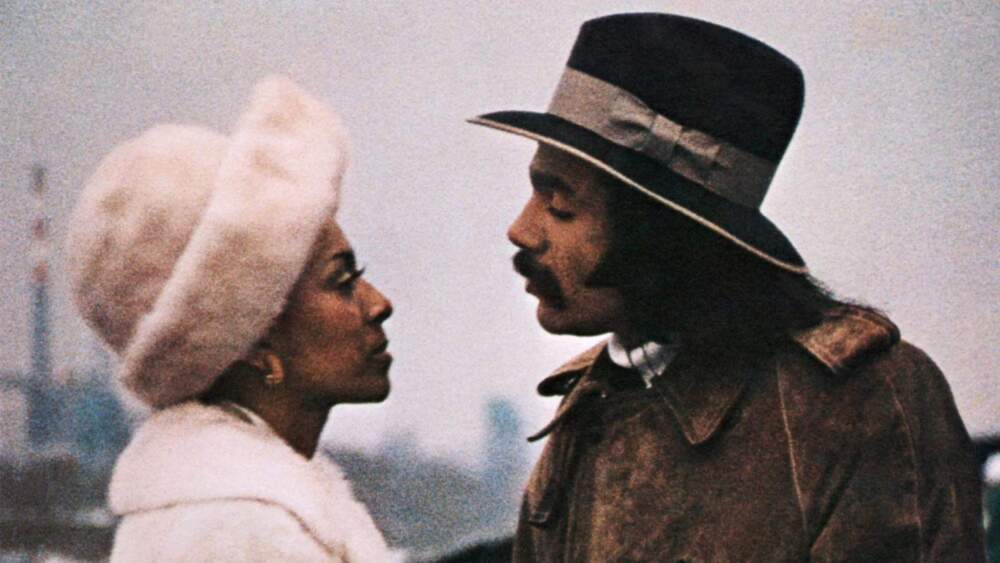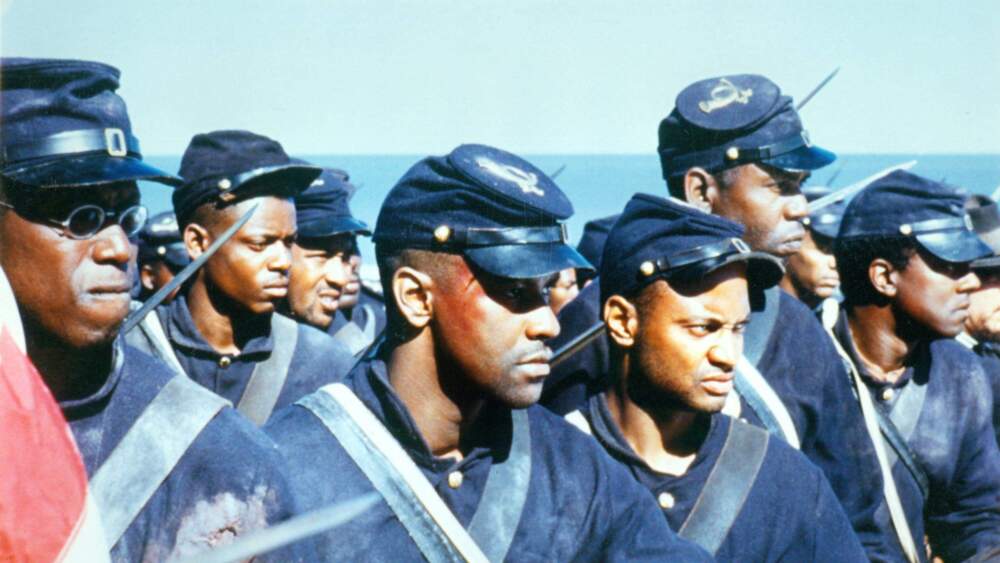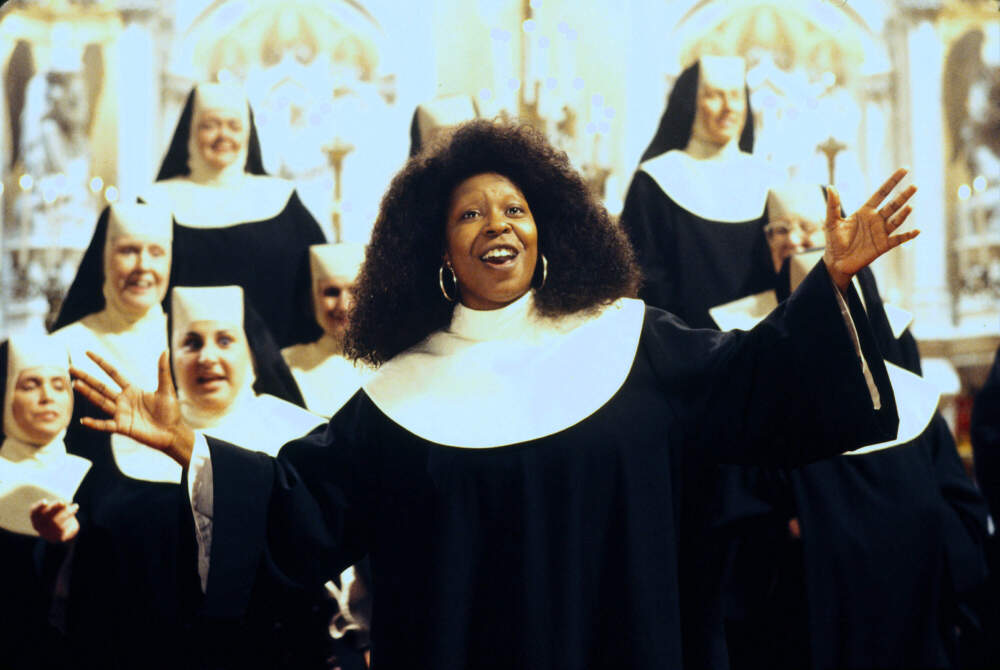Advertisement
Coolidge Corner Theatre celebrates Black icons of cinema

I must confess I can never remember anything about the mystery plot that drives “In the Heat of the Night,” director Norman Jewison’s 1967 Oscar-winner that partnered Sidney Poitier’s sophisticated Philadelphia detective Virgil Tibbs with Rod Steiger’s bloviating, bigoted sheriff to solve the murder of a wealthy industrialist in a small Mississippi town. It’s a prickly character study in the guise of a procedural, setting the template for generations of mismatched, Black-and-white buddy movies while touching on the tinderbox of racial relations at an especially fraught moment in history. No matter how many times I’ve seen the picture, I still can’t recall who killed Philip Colbert. But I remember everything about the slap.
If you’ve seen the movie, you haven’t forgotten it either. During a wonderfully insinuating interrogation scene in which Poitier makes a point of not showing the proper Southern deference to an effete orchid farmer, the old man hauls off and smacks him. Without a blink of hesitation, Poitier backhands him right back — a moment of seismic impact in movie theaters of the era — followed by an exquisitely underplayed reaction shot from Steiger that serves as a pressure relief valve for the audience. (The film’s nimble editor, Hal Ashby, would go on to direct classics such as “Harold and Maude,” “The Last Detail,” and “Shampoo.”) You won’t find the slap anywhere in the novel “In the Heat of the Night” was based on, but Poitier claimed he insisted upon it as a condition to taking the role. It’s a scene that’s about so much more than the movie it’s in, one worthy of the oft-abused term “iconic.”

So it’s fitting that a new digital restoration of “In the Heat of the Night” is screening on Sunday, Feb. 9, as part of the Coolidge Corner Theatre’s “Icons: Black History in Hollywood,” a six-film retrospective celebrating Black History Month by shining a spotlight on groundbreaking performances from throughout the years. The series kicks off with “Carmen Jones” (Sunday, Feb. 2), director Otto Preminger’s fascinating 1954 attempt to film Oscar Hammerstein II’s Broadway update of Bizet’s “Carmen” with an all-Black cast. Dorothy Dandridge was the first African American nominated for the Academy Award for Best Actress, playing the sultry temptress who takes a wrecking ball to the life of an uptight Air Force cadet played by Harry Belafonte.
It's a deeply strange movie that hasn’t aged all that well, best regarded as a time capsule of Dandridge’s traffic-stopping charisma. It’s impossible to watch “Carmen Jones” without mourning the career she might have had in a more just era. But what’s bizarre is that when the characters open their mouths to sing Bizet’s opera — or as my generation knows it, the music from “The Bad News Bears” — professional vocalists Dandridge and Belafonte are dubbed over with opera singers. The only performer singing in her own voice is Pearl Bailey, who perhaps not coincidentally gives the most relaxed performance in the picture. (Belafonte just looks flustered throughout.)
In a blistering contemporaneous review, James Baldwin described “Carmen Jones” as “a wedding of the blank, lofty solemnity with which Hollywood so often approaches ‘works of art’ and the really quite helpless condescension with which Hollywood has always handled Negroes.” I think the movie has more going for it than that, thanks mainly to Preminger’s pioneering use of the then-new CinemaScope format and the considerable charm of the performers. Especially Dandridge, who deserved to be even more of an icon.

You’ll find no such complaints of lofty solemnity leveled at 1972’s “Super Fly,” (Thursday, Feb. 6) director Gordon Parks Jr.’s down-and-dirty portrait of a Harlem dope pusher named Youngblood Priest, who sniffs cocaine off the cross he wears around his neck. Decked out in flowing trench coats and granted the soaring oratory skills of Shakespearean actor Ron O’Neal, Priest is trying to get out of the life but finds himself ensnared by a cadre of crooked cops forcing him to move their product.
The double and triple-crosses that ensue sometimes feel like a socially irresponsible answer to “Shaft,” directed by the filmmakers’ father, Gordon Parks Sr., the previous year. “Super Fly” is an excitingly amoral movie. We keep waiting to be told that crime doesn’t pay, but the truth is that it pays pretty well if you’re smart about it. Not exactly a marvel of pacing, the film is powered along by Curtis Mayfield’s fantastic score — one of the best records of the 1970s — with the director allowing songs to play out in their entirety. You can’t really blame Parks. Who wants to cut off “Pusherman” or “Freddie’s Dead”? (Unfortunately, one can’t say the same for a sudsy, mid-film bathtub sex scene that goes on for so long I daresay two movie characters have ever been cleaner.)
Advertisement

One of my favorite only-in-Boston moviegoing memories was when my friends and I went to see Edward Zwick’s Civil War drama “Glory” (Sunday, Feb. 16) at the old Charles Cinema on Cambridge Street. The film was already playing near us in the suburbs, but we’d schlepped into town because the Charles had the biggest screen around and was showing it in 70 mm. (See, even at 14 years old I was already annoying about presentation.) Near us in the theater was a Civil War reenactor, sitting all by himself in full Union Army regalia. For real.
We chatted a bit with him afterward, admiring his costume and sword, grilling him about the film’s accuracy and wondering if he might be slightly insane to be walking around downtown dressed up like this. It wouldn’t be until much later in life that any of us realized there are a lot of Americans for whom the Civil War never ended, and we should have been grateful that at least he was on the right side.
Anyway, “Glory.” Zwick’s 1989 epic is a film about the historic contributions of the Black soldiers of the 54th Massachusetts Infantry Regiment, starring Matthew Broderick. Aye, there’s the rub. For a shamefully long time, Hollywood movies about Black characters were required to have a white protagonist, almost like a tour guide for we palefaces in the audience who executives believed would get uncomfortable having to see too many people onscreen who don’t look like us. You needed a nice, friendly white star to explain why these folks were worthy of your sympathy and attention.
“Glory” isn’t as egregious as Richard Attenborough’s “Cry Freedom,” a biopic of South African activist Steve Biko that’s all about how brave Kevin Kline’s character was to be friends with him. But I remember my friends and I watching Denzel Washington — who won his first Oscar for “Glory,” and, by the way, also played Biko in “Cry Freedom” — rapt with attention as he stared daggers into the lens during the film’s galvanizing whipping scene. Gazing up at the Charles’ giant screen while Washington gave a performance that would launch his career into the stratosphere, the bunch of us wondered, “What’s Ferris Bueller doing in this movie again?”
A lot of theaters were still closed when “Judas and the Black Messiah” (Wednesday, Feb. 19) opened in February of 2021, and I spent part of my original review wishing I could have watched director Shaka King’s pulpy, propulsive history lesson on a big screen, where it was clearly designed to be seen. Co-star Daniel Kaluuya won an Academy Award for Best Supporting Actor for his ferocious portrayal of Black Panther chairman Fred Hampton, something most people don’t remember because that year the statuettes were unceremoniously handed out in a train station. This series gives you a second — or maybe first — chance to see a provocative film that fell through the cracks of an unfortunate moment.

So many of these movies are such heavy, historical reckonings, I’m delighted that the Coolidge is closing with 1992’s “Sister Act” (Sunday, Feb. 23). Whoopi Goldberg’s pop cultural ubiquity over the past four decades has perhaps allowed us to take for granted how many doors she kicked down for Black women in Hollywood. Whoopi didn’t just win an Oscar, she hosted the show. Four times. Back in the ‘80s, you didn’t see many women who looked like Whoopi Goldberg in movies or on television, and I daresay she’s the only performer with dreadlocks that my mom and her friends ever adored. “Sister Act” is a reminder of a time when the sight of Whoopi singing Motown in a nun’s habit would be good for $231 million at the box office. (Adjusted for inflation, that’s more than the second “Avengers” movie made in the U.S.)
It's a ramshackle little charmer, one of those low-budget, high-concept comedies Disney used to make back when they had an entire subsidiary (Touchstone Pictures) fueled by massively profitable Bette Midler pictures. Originally conceived by playwright Paul Rudnick as a vehicle for the Divine Miss M, the film stars Goldberg as a Reno lounge singer who witnesses a murder and has to hide out in a San Francisco convent. Nobody will ever make the case for “Sister Act” being a great movie, but it’s a greatly enjoyable one, a fun family entertainment with a terrific star turn from Goldberg and strong backup from the formidable likes of Maggie Smith and Harvey Keitel. (Fun fact: Keitel made this movie the same year he was in “Bad Lieutenant” and “Reservoir Dogs.” What a run.)
Let’s face it, nuns are funny. Nuns in a casino are even funnier. What “Dirty Dancing” director Emile Ardolino — who died the following year of AIDS-related complications — lacked in formal elegance, he made up for in crowd-pleasing brio. But it’s Goldberg’s show, carrying the film with such sheer force of personality that a lot of the time you’re already laughing before she gets around to the punchline. That’s iconic.
“Icons: Black History in Hollywood” runs at the Coolidge Corner Theatre from Sunday, Feb. 2 through Sunday, Feb. 23.
